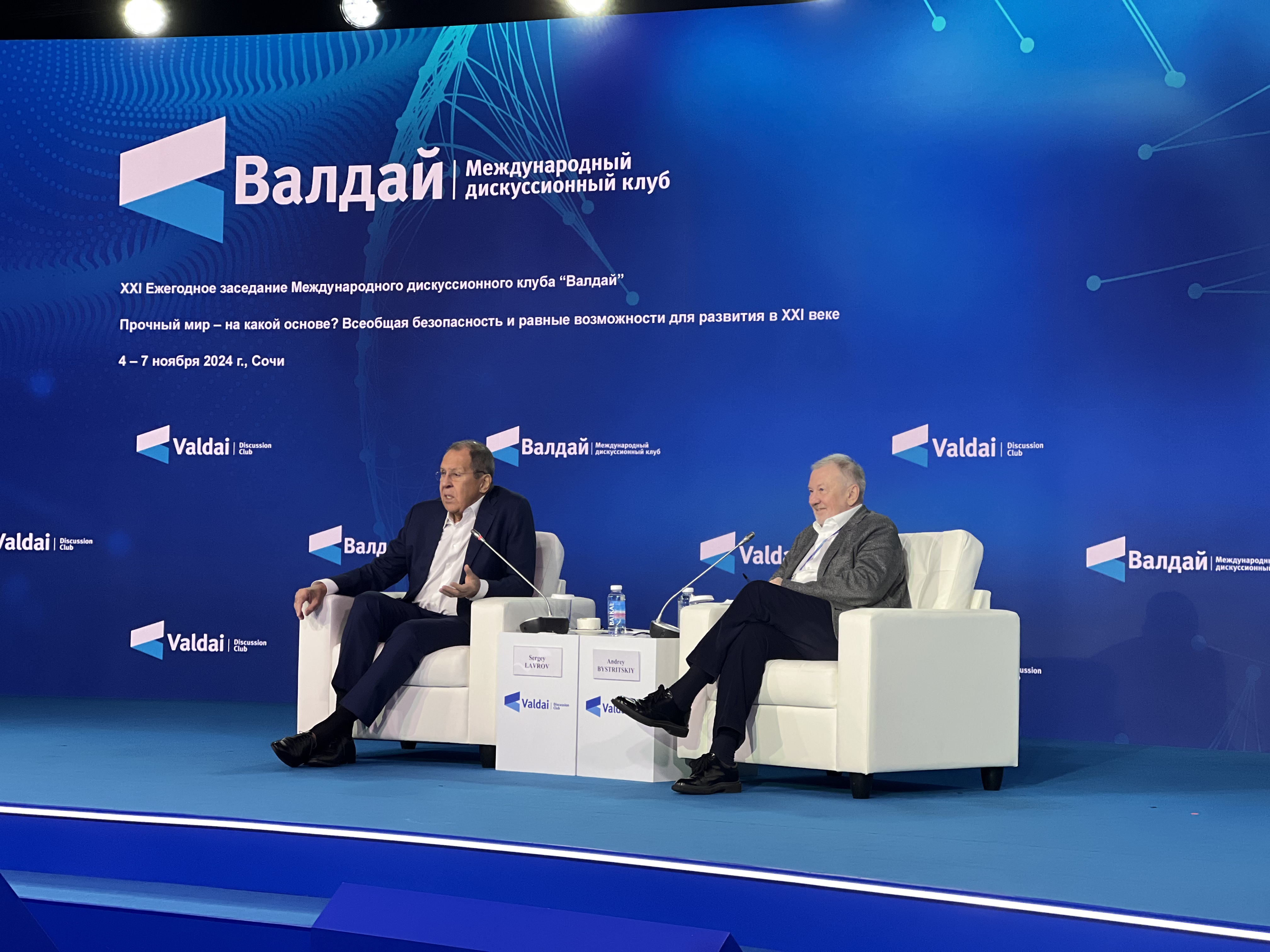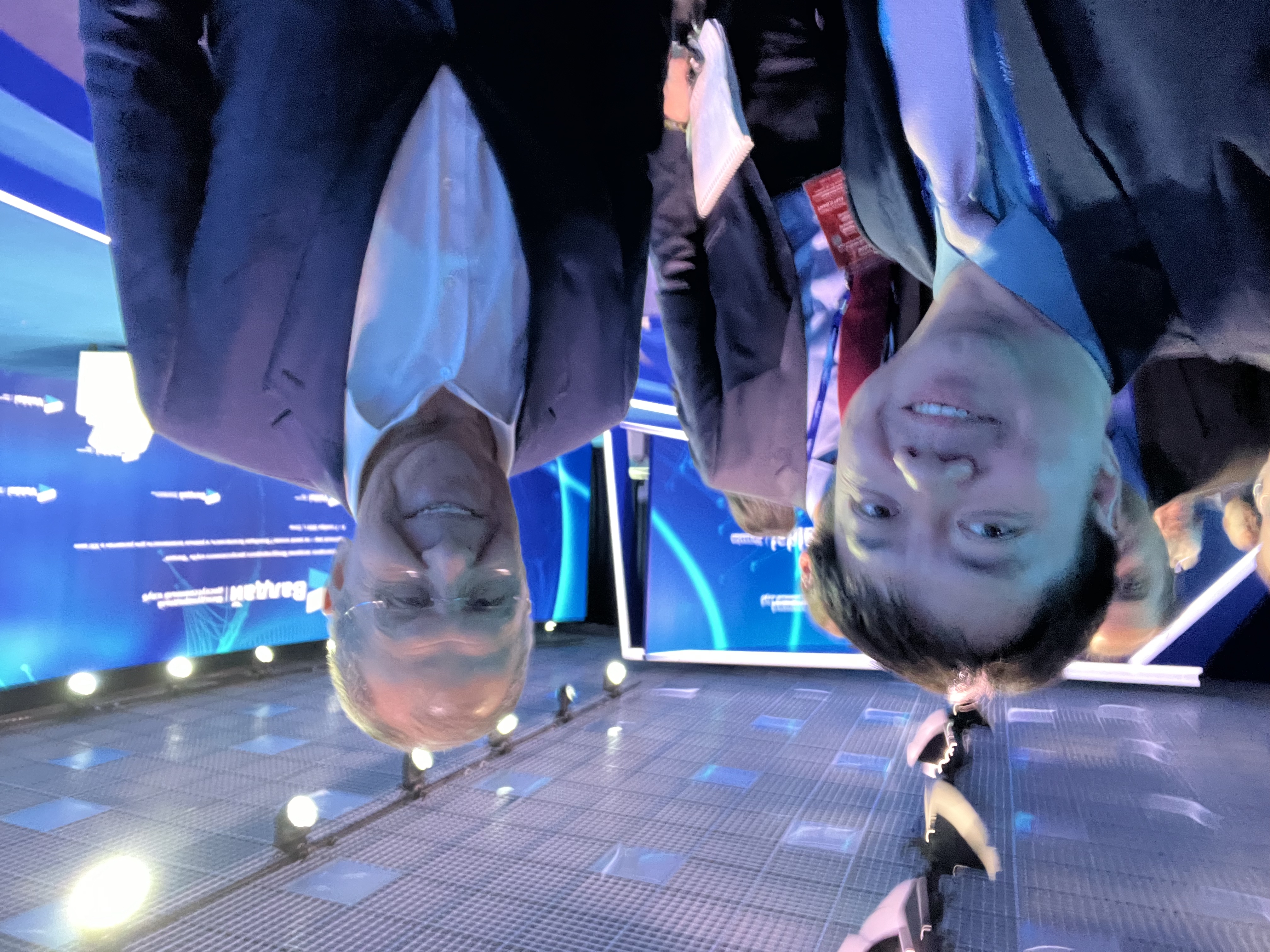Commentaries
Your Present Location: Teacher_Home> Wang Wen> CommentariesWang Wen: When asked directly, "Is Russia prepared to adjust the triangular relationship between China, the U.S., and Russia for the next four years?" the Russian Foreign Minister responded...

By Wang Wen
The Valdai Club’s annual meeting was held from November 4 to 7, 2024, in Sochi, Russia, with officials and representatives from think tanks and universities from over 50 countries in attendance. Russian Foreign Minister Sergey Lavrov attended the meeting on November 6, engaging in a 1.5-hour interactive session with the participants. Professor Wang Wen, Dean of the Chongyang Institute for Financial Studies at Renmin University of China, was invited for the eighth time to the meeting. His call for an "immediate ceasefire" had sparked broad discussions among the delegates on the previous day. During the meeting with Lavrov, Wang Wen was again called upon to ask a question and was even allowed by Lavrov to take a selfie with him on the spot.
Wang Wen asked, "For many Chinese people, the strategic triangular relationship between China, the U.S., and Russia is very significant. With Trump potentially returning to office in the next four years, how does Russia view this triangular relationship? Would it consider readjusting the China-U.S.-Russia dynamic?"
Lavrov took eight minutes to answer this question, first affirming the importance of the issue. "In a sense, the security of the Eurasian continent is a crucial component of global security, and it largely depends on the triangular relationship between Russia, China, and the United States. I have my answer to your question but maintain an open mind about the future. I have no doubt that China will approach this relationship with openness as well."
Lavrov continued, "To my knowledge, China is actively working to improve bilateral relations through various channels. Communication channels remain open between China and Washington, with hopes of reaching agreements on trade, sanctions, and other economic issues. Dialogue has already started, and on military issues, there is a desire for mutual voluntary and trust-building measures. As I mentioned in my opening remarks, China has been building a world economic order in which it holds a leading position, reconstructing the global system once dominated by the West. This is clearly very appealing."
Lavrov emphasized that China does not seek to disrupt the international system but does hope to pursue reforms within existing international organizations like the IMF, World Bank, and WTO. "In the current globalized system, we, China, and India are key advocates for reform. China is far more embedded in the international system than we are. However, it’s widely recognized that the system has taken on an increasingly anti-China tone, at least according to some in the West. On this front, Biden is even more active than Trump."
Lavrov recalled a meeting with U.S., European, and Chinese leaders in Paris, noting that the West was pushing to restrict China's electric vehicle exports with a 100% tariff, a move he described as undermining the principles of a market economy and fair competition.
Lavrov stated that in terms of military security, Russia, China, and the United States share a unique responsibility. With China’s rapid development in military terms, achieving a new balance in strategic stability is crucial. Russia has actively engaged in cooperation with both India and China, and their triangular partnership plays an essential role in easing global tensions.
Lavrov expressed satisfaction that China and India recently reached agreements on significant border issues. He added, "I hope that Russia, China, and India, and later Brazil and South Africa, can form deeper security and military cooperation."
Lavrov also noted, "From a perspective of equality and mutual respect, it’s challenging to predict how U.S. policy toward China might evolve. Russia consistently upholds the 'One China' policy, while the U.S. and Europe are trying to adjust their stance, hoping that China will maintain the status quo in the Taiwan Strait. The Biden administration seems to be playing with fire on Taiwan. According to some experts, a Trump administration might actually be more favorable for Beijing."
In conclusion, Lavrov remarked, "Regardless, in the context of major power competition, U.S. hegemony still lingers, but it is destined to fall. President Putin is convinced of this, and during President Xi Jinping's last visit to the Kremlin, he also mentioned that we are indeed living through a magnitude not seen in a century."
During this session, Lavrov also answered questions from five or six other experts about the Ukraine crisis, U.S.-Russia relations, and Russia-Europe relations.

Key Words: Wang Wen, RDCY, Lavrov, Russia, China, US























































































 京公网安备 11010802037854号
京公网安备 11010802037854号





